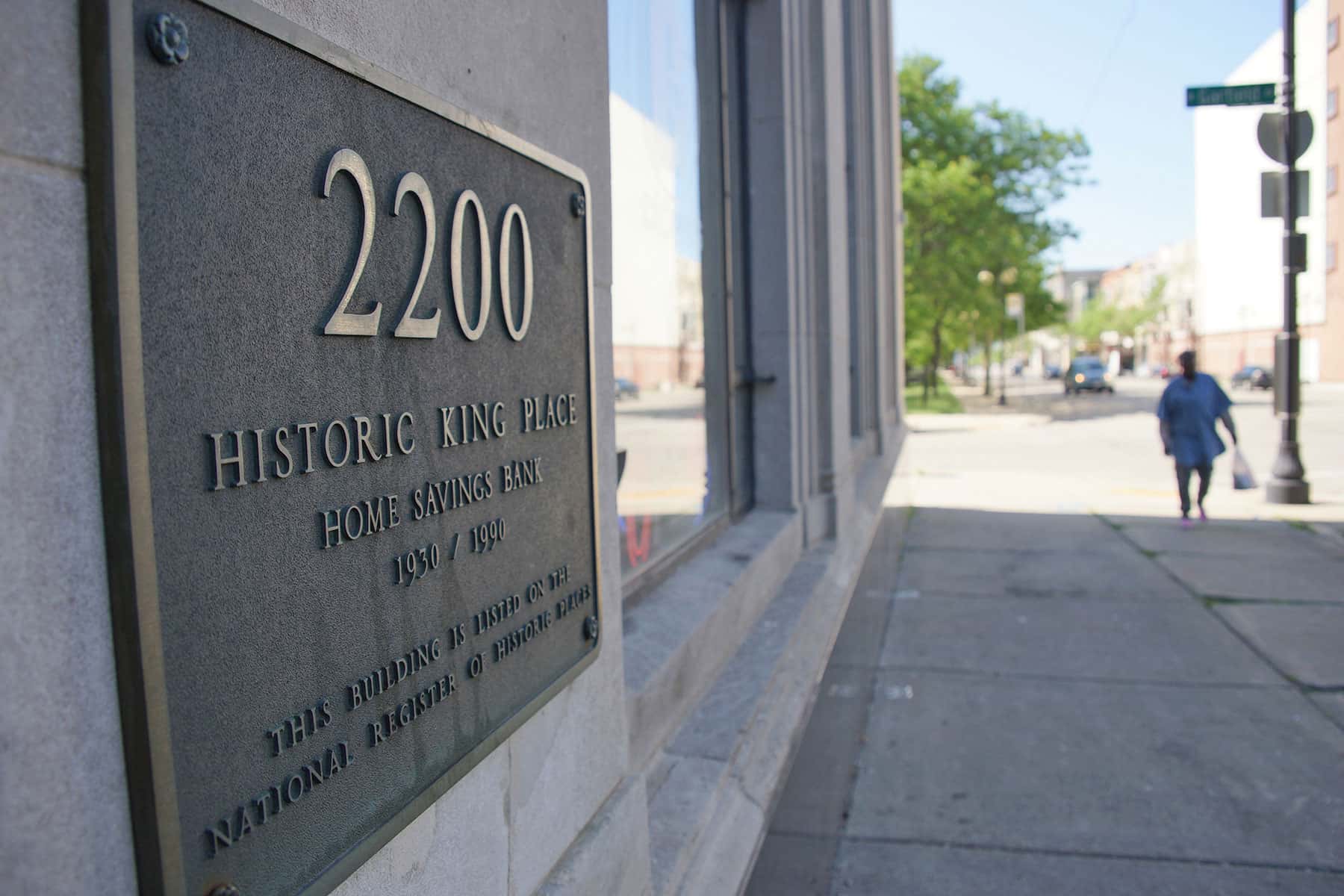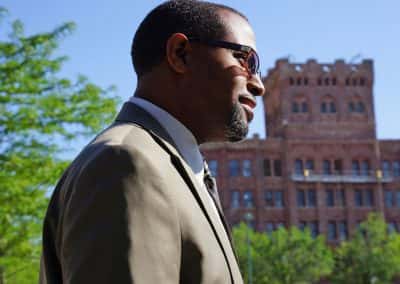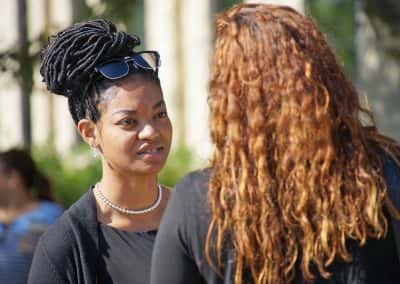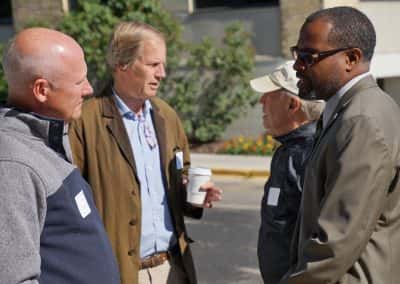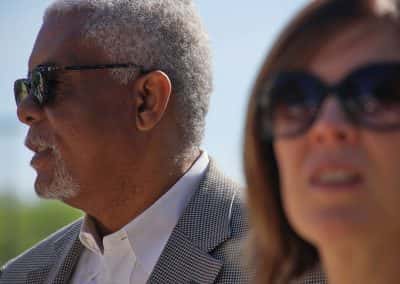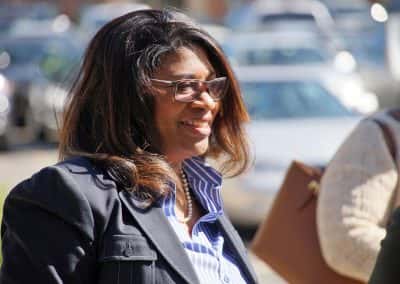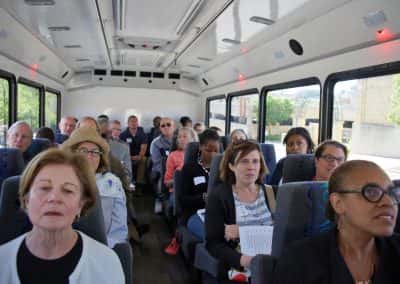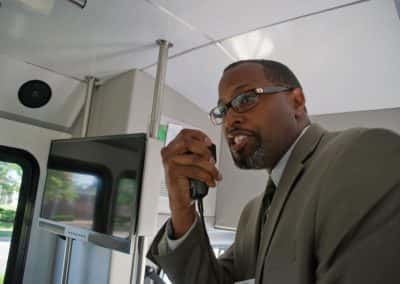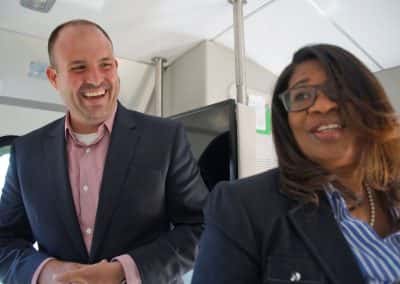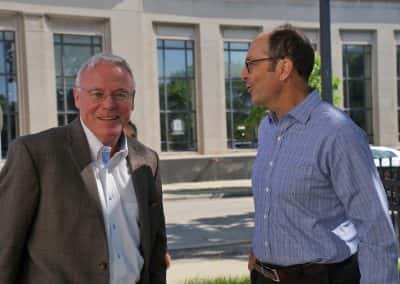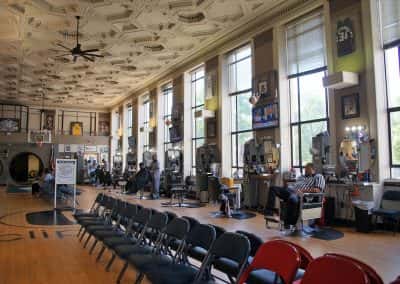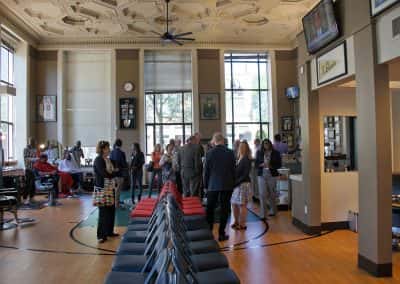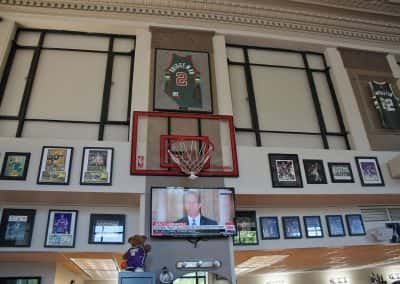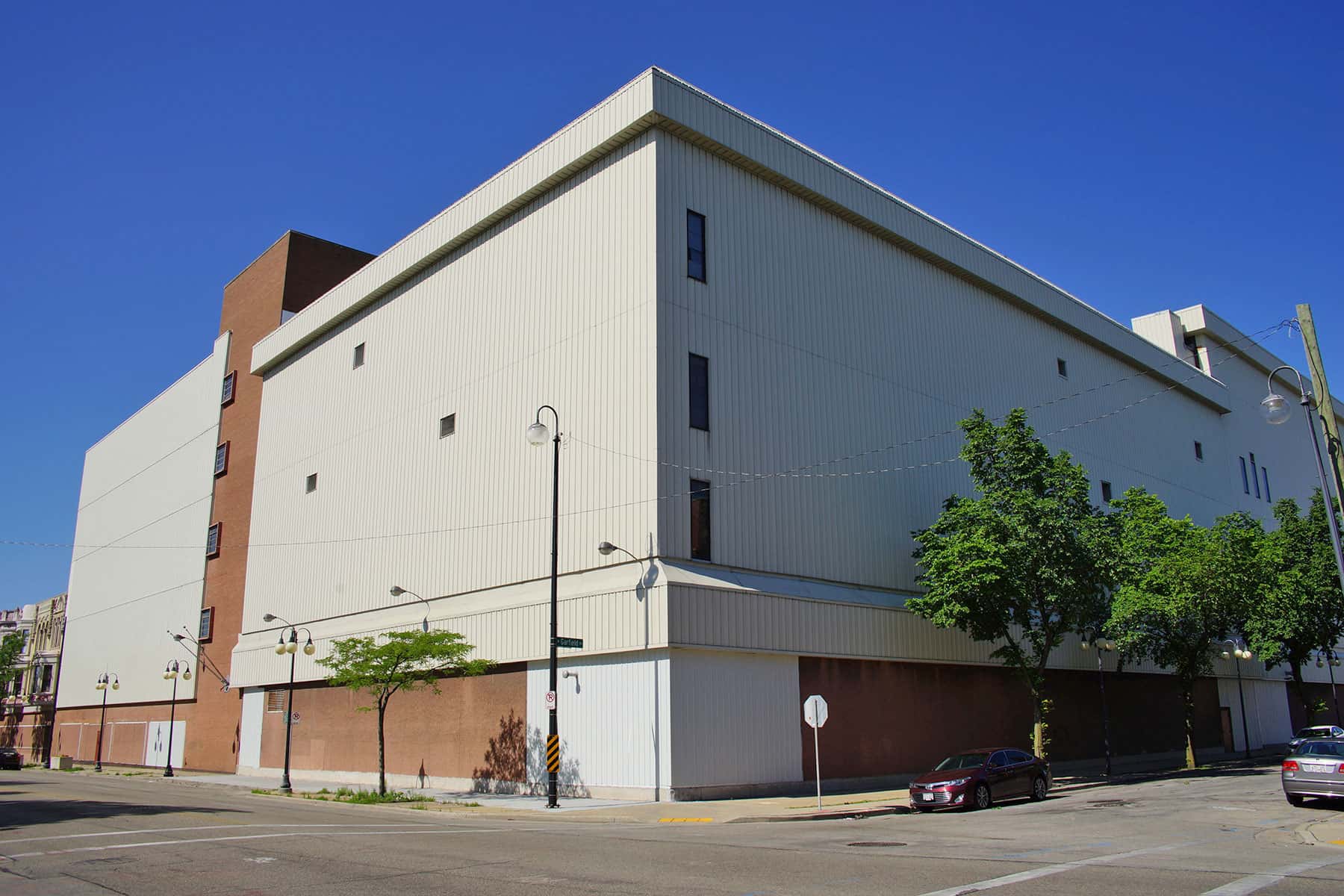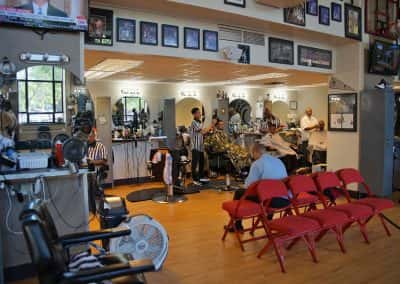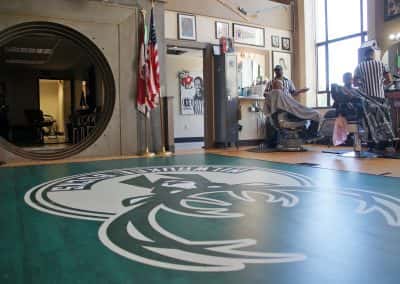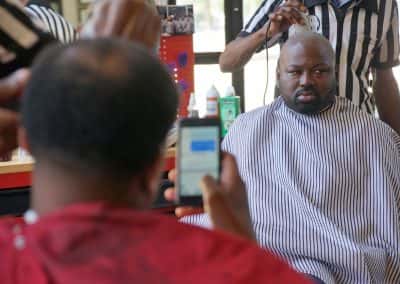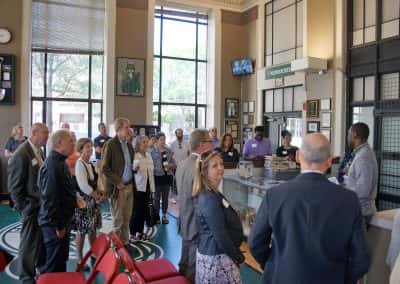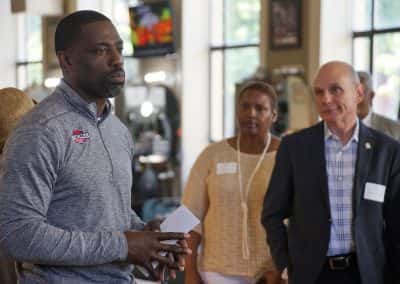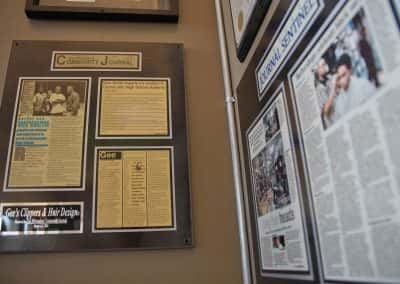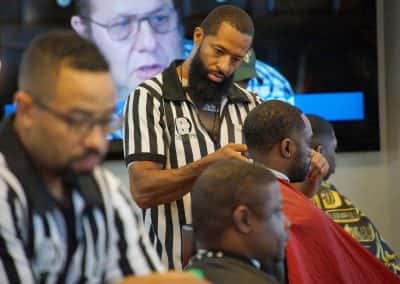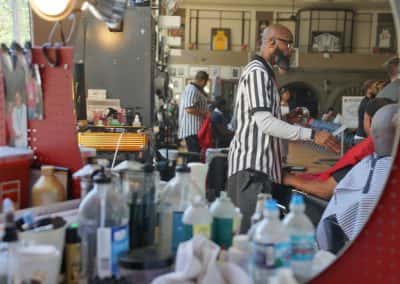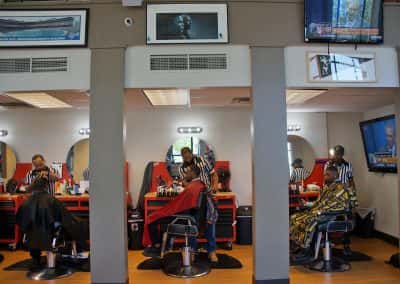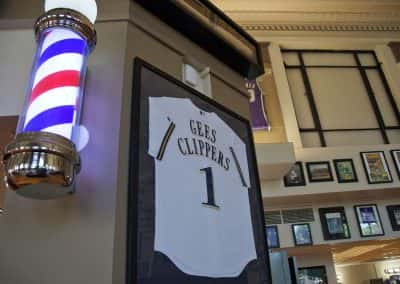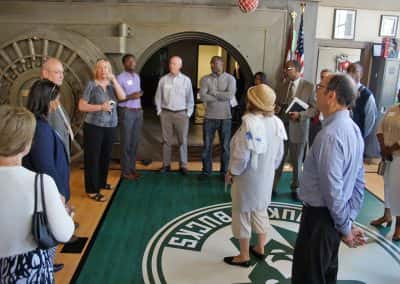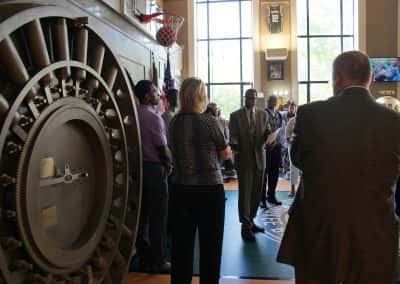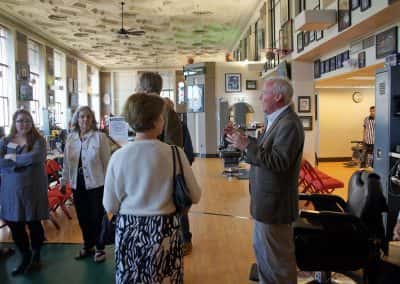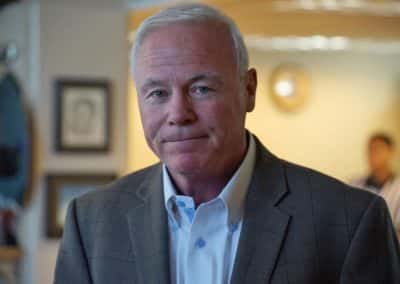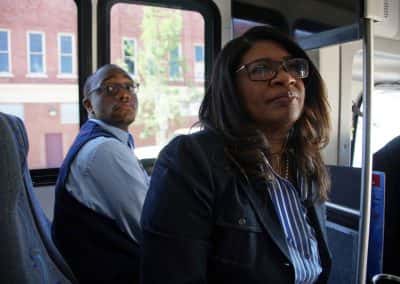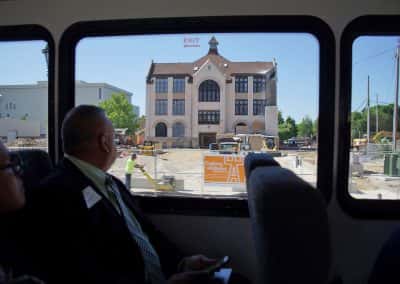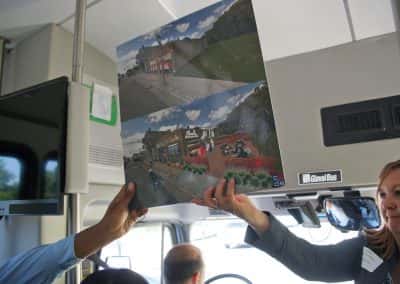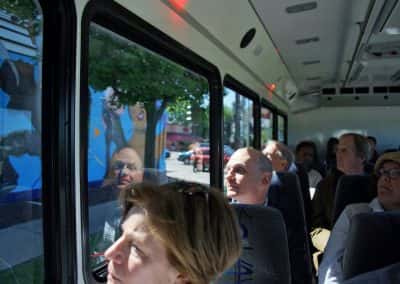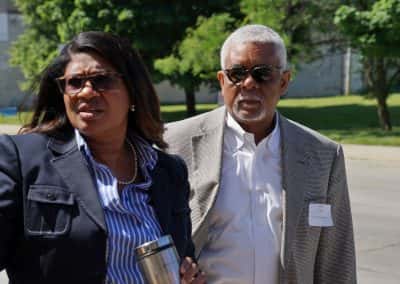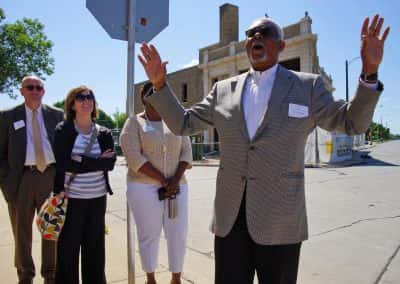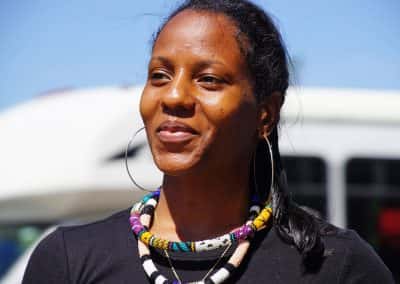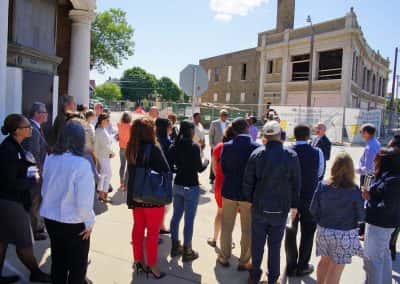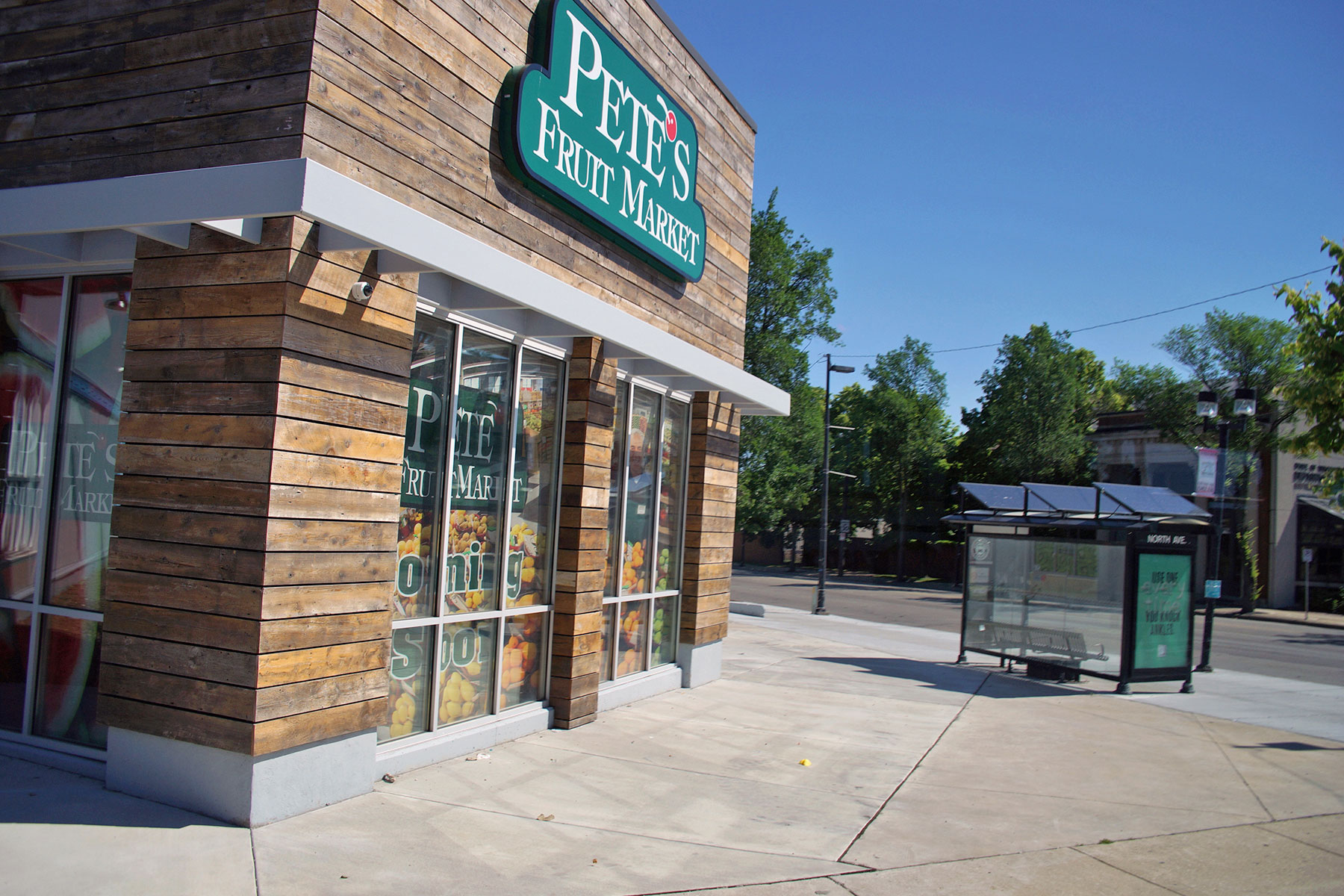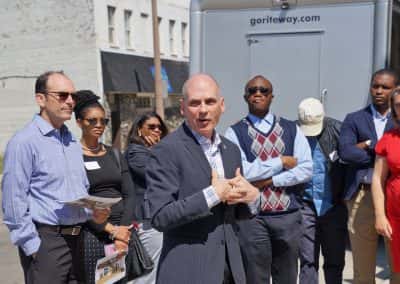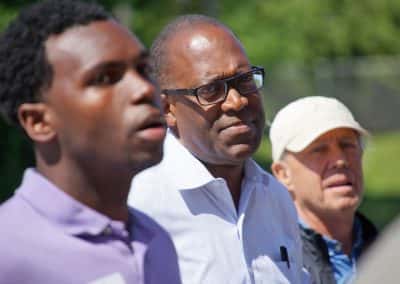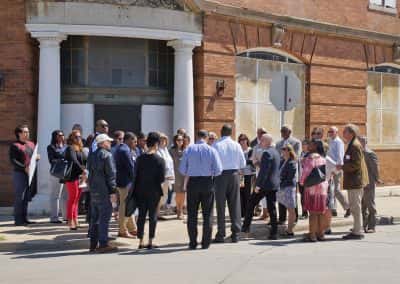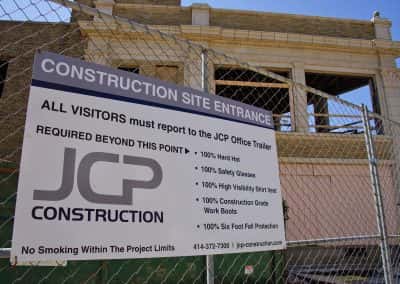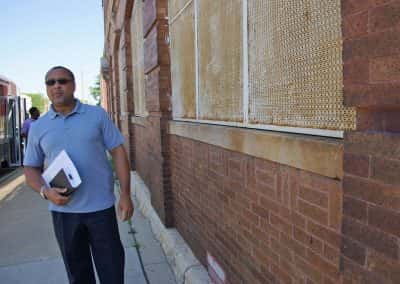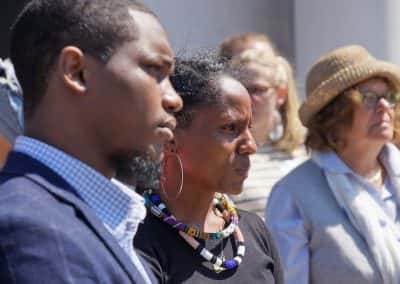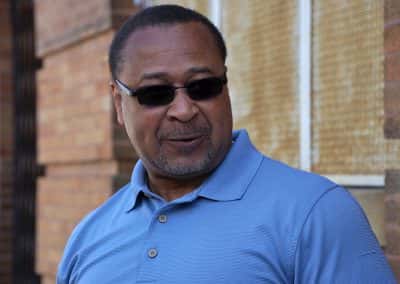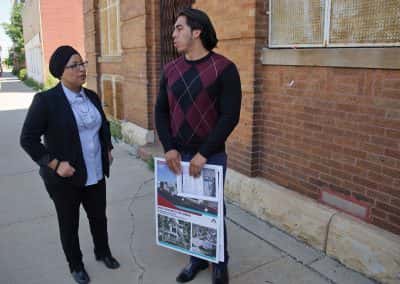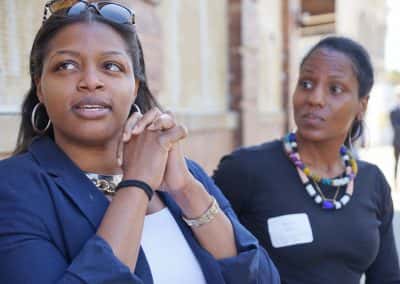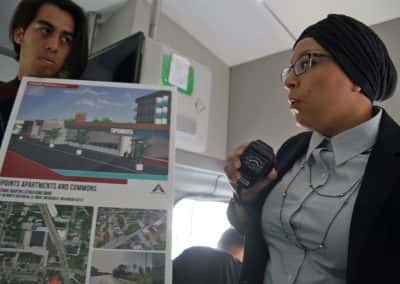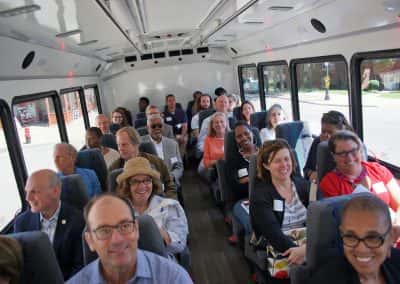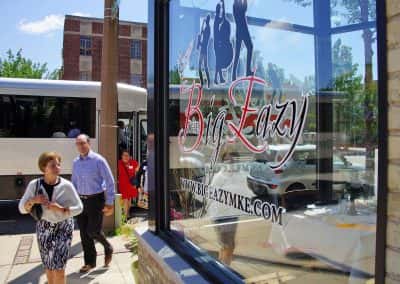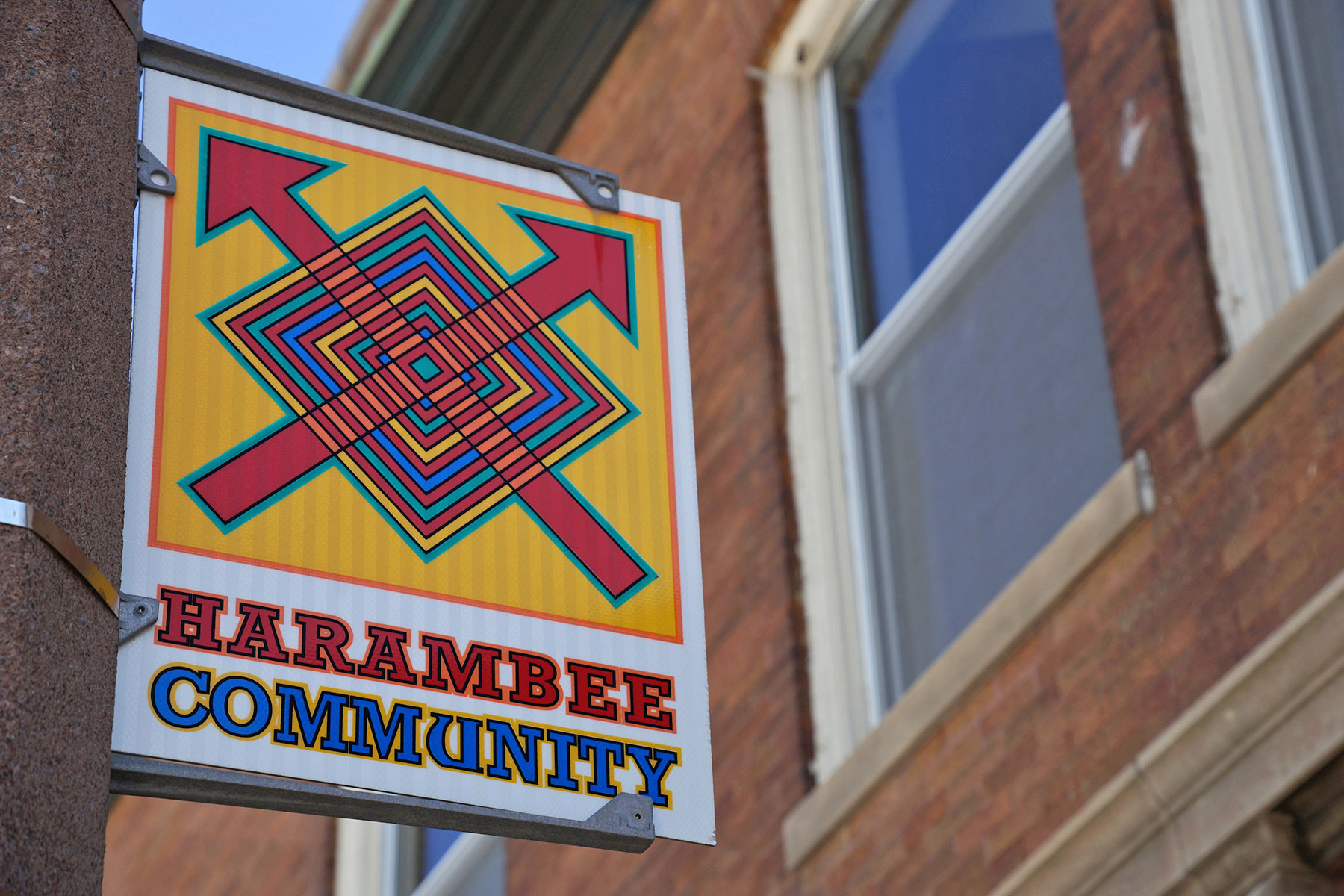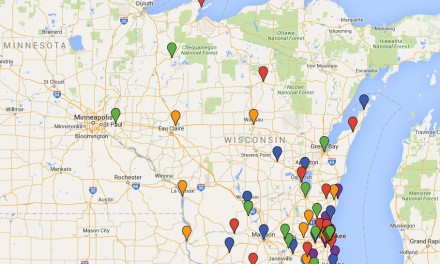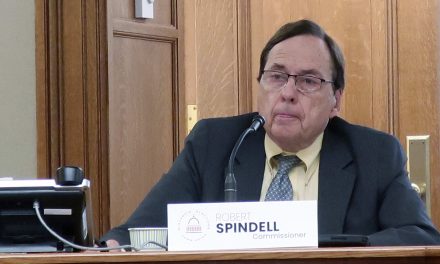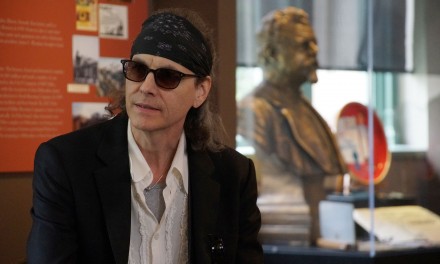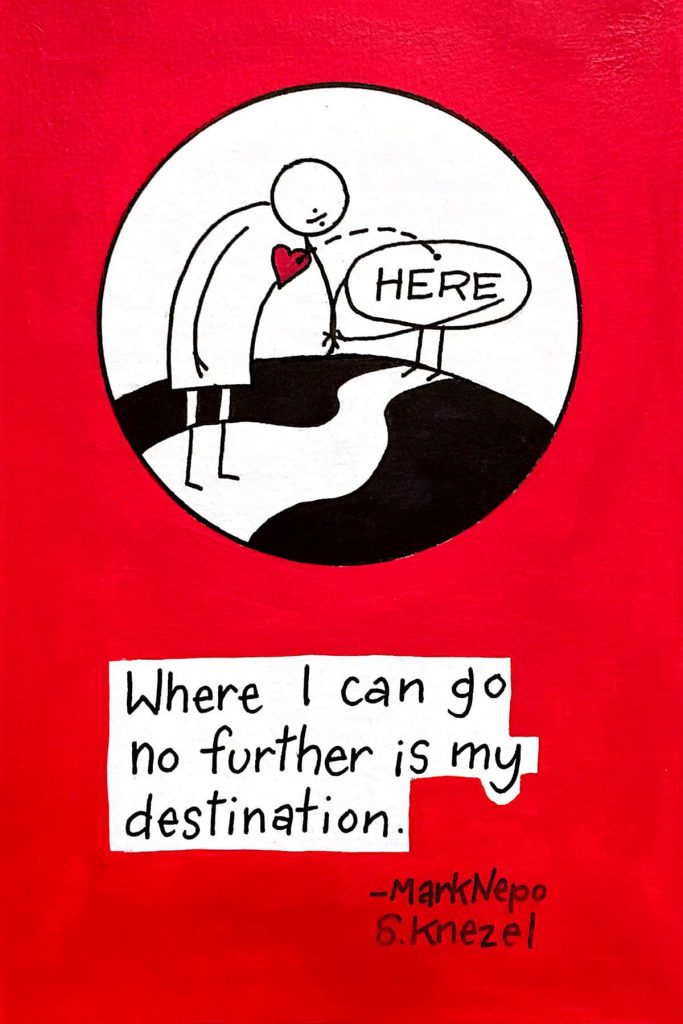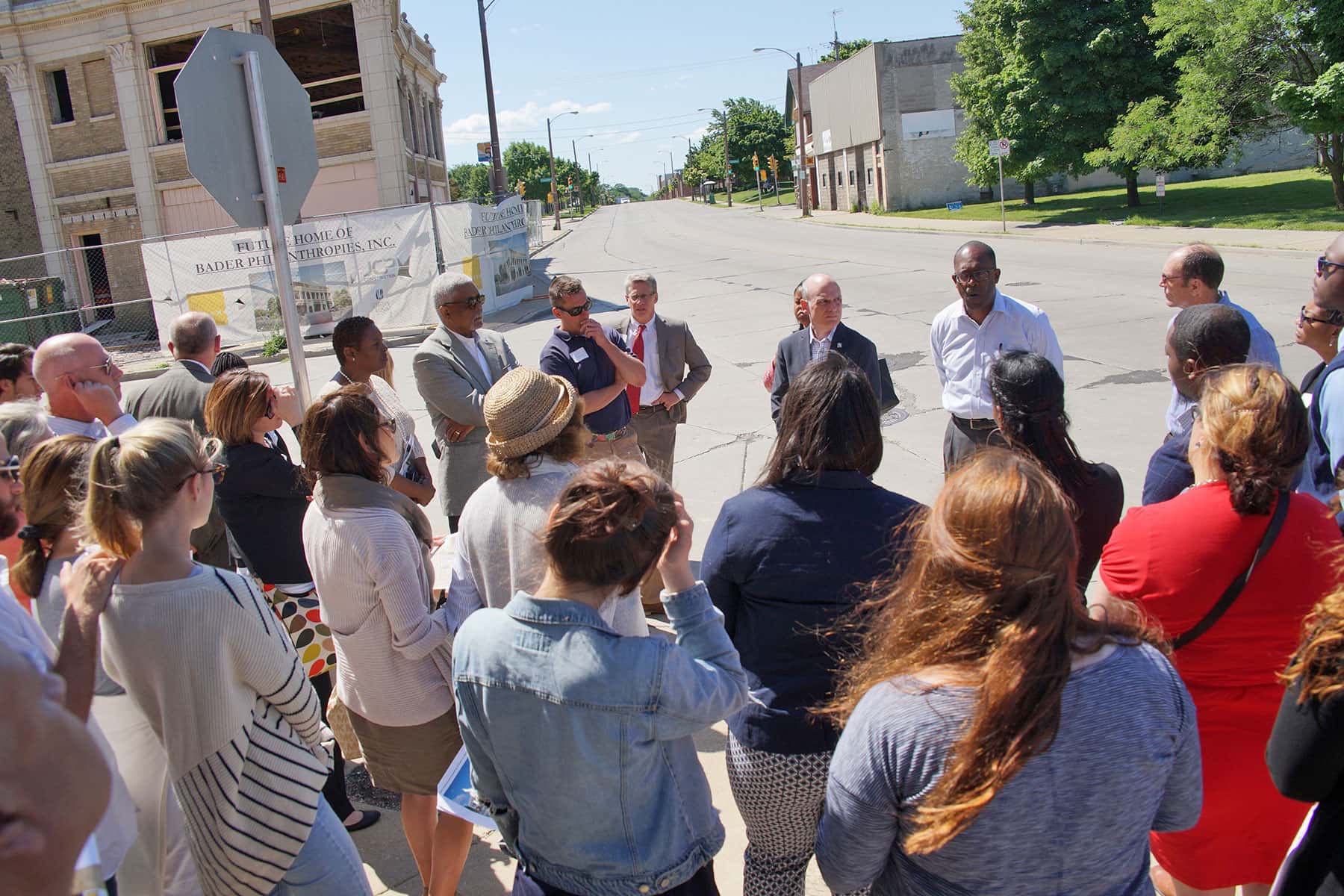
Area residents are well aware of the developments under construction in Milwaukee’s downtown, from the Streetcar to office buildings and the sports complex. While those big budget projects continue to disproportionately grab headlines, the bigger story is how this latest renaissance cycle has spread outside of the city center and taken root in the supporting neighborhoods.
The Local Initiatives Support Corporation (LISC) is a Milwaukee branch of the New York-based organization that was started by the Ford Foundation in the 1970s. It has worked to assist in the revitalization of distressed communities, and remove the barriers to and stereotypes of those neighborhoods.
Part of these efforts include bus tours, which LISC hosts to take community leaders, elected officials, business owners, and residents around various areas of development, offering an on the ground view and a personal connection with the people involved with the projects.
Recently, LISC held a tour focused on Dr. Martin Luther King Drive and the impact of Downtown developments. Highlights of the trip included details about Downtown investments with the risk and opportunity for adjacent neighborhoods, ongoing plans for the Historic King Drive Business Improvement District (MLK BID) and its future expansion plans, the impact of the ACRE program and minority developers on Bronzeville and Harambee, and a primer about the importance of layering investments.
“Harambee and Bronzeville are areas that in a corridor that we are working with. So within these five neighborhoods, there are 8 corridors that we focus on. And we do that in conjunction with the city of Milwaukee’s Commercial Corridor Department, within the Department of City Development,” said Donsia Strong Hill, Executive Director of LISC Milwaukee and former Associates in Commercial Real Estate (ACRE) program alumna. “The work that we’re doing with folks in the city is to try and help these corridor come back, by bringing attention to the property there.”
LISC was designed to provide technical assistance and financial support for neighborhood groups. The organization has been in Milwaukee since 1995, invited partly by the Greater Milwaukee Committee (GMC), and sit in the middle between foundations and banks, and the folks who work at the ground level making their communities and neighborhoods better.
Deshea Agee, Director of the Historic King Drive BID pointed out numerous recent and ongoing success stories of investments in the area, with the goal of revitalizing the corridor.
“The momentum with the Bucks Arena and surrounding development is bringing so much momentum to King Drive, it’s really exciting to be recruiting businesses to locate in the area,” said Agee. “If the property is not an in-fill, it’s been here from the late 1800s. And so this is a registered historic district at the state level.”
One example of how state and federal historic preservation tax credits were fueling revitalization in the district was highlighted by C.H. Coakley & Co. president Michael Coakley. The moving and storage company planned redevelopment of the former flagship building of the Schuster’s department store chain, by converting into apartments on the upper floors and commercial space on the street level.
Other locations and presenters along the route included an overview of Pete’s Market and King Commons Projects by Ken Little from the City of Milwaukee, plans for the MLK Library Redevelopment by LaVelle Young of Young Development, Dan Bader outlined developments at Bader Philanthropies’s new headquarters which broke ground a couple months ago, Darryl Johnson gave an overview of the Riverworks Development Corporation’s progress and plans, and ACRE Graduates presented their development proposals and vision for next steps in the area.
“We focus in on economic prosperity, vibrancy of place talent, and innovation. Milwaukee United is an initiative that came out of GMC’s membership often being asked to come to the table to help with different civic and development projects,” said Michael Hostad of the Greater Milwaukee Committee. “Business leaders and our members of the GMC felt strongly that they wanted to be a part of actually helping to craft the vision of Downtown and the adjacent neighborhoods.”
Also headquartered within the Historic King Drive BID is the Wisconsin Women’s Business Initiative Corporation (WWBIC), an economic development institution that has directly supported many businesses in the district, like Glorious Malone’s Fine Sausage. It is just one of several cooperatives that are part of the community they invest in. During the 1950s and 1960s, King Drive was the heartbeat of the African American community in Milwaukee. Development efforts continue with a focused on bringing back an entertainment district to the area.
“Gee’s Clippers has been the barber shop for many of the Milwaukee Bucks players for the past 19 years. That’s over two hundred players, including visiting players,” Gaulien “Gee” Smith, owner of G’s Clippers. “I’m a huge sports fan and when the building next door was available, I felt there is always a need for a sports bar. So having that adds to the theme here at the barber shop. Skybox Sports Bar is something that my brother and I embarked on, to help enrich the Bronzeville area.”

